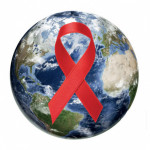The attempt to reduce pill burden, cost and other risks associated with antiretrovirals (ARVs) by treating HIV with only Tivicay rather than a combination ARV regimen turns out to be ill advised, Healio reports.
Publishing their findings in The Lancet HIV, researchers from the open-label Phase II noninferiority DOMONO study recruited 104 people on stable combination ARV treatment, switching 51 of them to once-daily Tivicay monotherapy immediately and then switching the remaining 53 people to Tivicay monotherapy (as single-drug regimens are called) after a 24-week deferral period during which they continued on their previous combination ARV regimen.
At the end of the initial 24-week period, 2 percent of those in the group that switched to Tivicay immediately had a viral load of 200 or higher, compared with none of those in the group that remained on combination therapy during this period. At the 48-week mark, 8 percent of the 95 percent who were still on Tivicay monotherapy at that point had a virologic failure, including six of those in the immediate-switch group and two in the deferred-switch group. Three of these participants developed viral mutations associated with resistance to integrase inhibitors, the ARV class to which Tivicay belongs.
As a result of these negative outcomes, the researchers terminated the study early and ultimately concluded that Tivicay monotherapy should not be recommended.
To read the Healio article, click here.
To read the study abstract, click here.







1 Comment
1 Comment